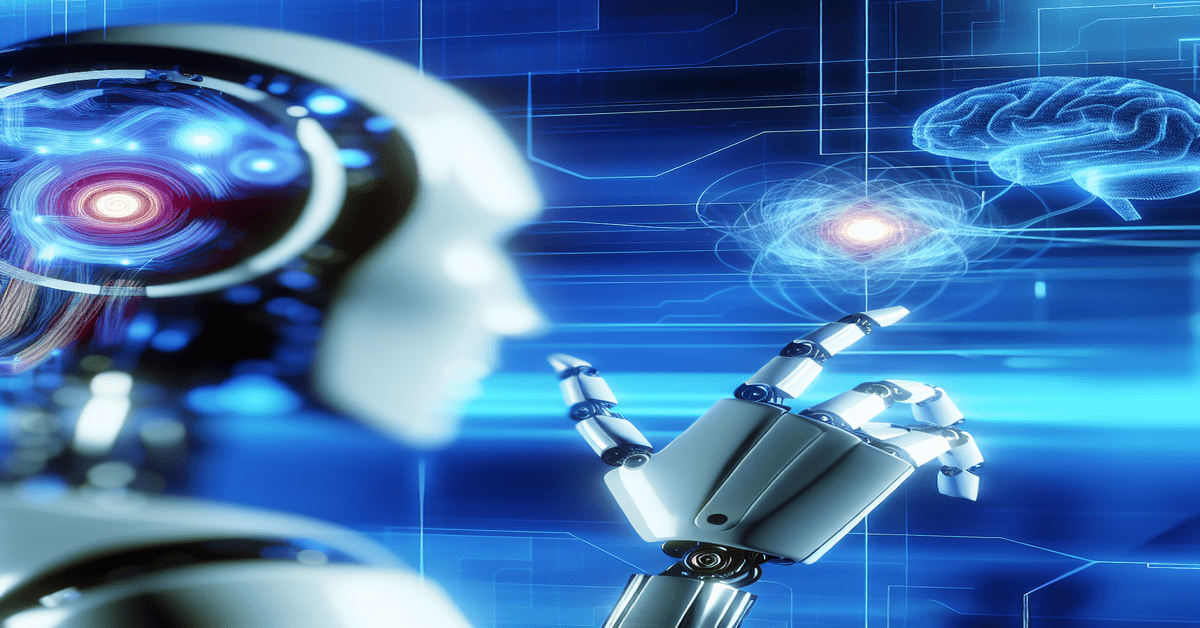The Future of AI: Unlocking the Potential of Artificial General Intelligence
The field of artificial intelligence (AI) has been rapidly advancing in recent years, with breakthroughs in machine learning, natural language processing, and computer vision. As AI continues to evolve, the question on everyone’s mind is: where will it take us in the future? In his article on Forbes, Bernard Marr explores the possibilities of achieving artificial general intelligence (AGI) and its potential impact on various aspects of human life.
The Quest for Artificial General Intelligence
One of the most exciting prospects in the future of AI is the development of artificial general intelligence (AGI). AGI refers to a machine’s ability to perform any intellectual task that a human can do, with the same level of flexibility and adaptability. Currently, most AI systems are designed for specific tasks, such as image recognition or language translation. However, the ultimate goal is to create an AI system that can learn and reason like a human, without being limited to a single domain.
Achieving AGI would be a **monumental milestone** in the history of technology. It would open up a world of possibilities, from revolutionizing scientific research and medical breakthroughs to transforming industries and improving our daily lives. Imagine having a virtual assistant that can not only understand and respond to your queries but also anticipate your needs and provide personalized recommendations based on your preferences and behavior.
Ethical Considerations and Challenges
While the potential benefits of AGI are immense, it also raises important ethical considerations and challenges. As AI systems become more advanced and autonomous, there are concerns about their impact on employment, privacy, and security. Will AI replace human workers in certain industries, leading to job losses and economic disruption? How can we ensure that AI systems are transparent, accountable, and free from bias?
Another significant challenge is the **alignment problem** – ensuring that AI systems are designed and deployed in a way that aligns with human values and goals. As AI becomes more powerful and influential, it is crucial that we develop robust frameworks for ethical AI development and governance. This includes establishing guidelines for responsible AI use, promoting diversity and inclusion in AI research and development, and fostering public trust and understanding of AI technologies.
The Future of Human-AI Collaboration
Despite the challenges, the future of AI holds immense promise for human-AI collaboration. Rather than replacing humans, AI has the potential to augment and enhance our capabilities, enabling us to tackle complex problems and make better decisions. For example, AI-powered tools can assist doctors in diagnosing diseases more accurately, help engineers design more efficient and sustainable products, and enable businesses to provide more personalized and engaging customer experiences.
As AI continues to advance, it is essential that we embrace a **collaborative approach** to AI development and deployment. This means fostering interdisciplinary collaboration between AI researchers, domain experts, policymakers, and the general public. By working together, we can harness the power of AI to create a better future for all, while also addressing the ethical and societal implications of this transformative technology.
Preparing for the AI-Driven Future
To prepare for the AI-driven future, it is crucial that we invest in education and skills development. As AI transforms industries and job markets, workers will need to acquire new skills and adapt to changing roles. This requires a **lifelong learning mindset** and a willingness to embrace change and innovation.
Governments, businesses, and educational institutions have a critical role to play in preparing the workforce for the AI-driven future. This includes investing in AI research and development, promoting STEM education and digital literacy, and providing training and upskilling opportunities for workers. By proactively addressing the skills gap and fostering a culture of continuous learning, we can ensure that everyone has the opportunity to thrive in the age of AI.
Conclusion
The future of AI is both exciting and challenging. As we work towards achieving artificial general intelligence, it is essential that we approach AI development and deployment with a sense of **responsibility and purpose**. By embracing ethical considerations, fostering collaboration, and investing in education and skills development, we can unlock the full potential of AI to create a better future for all.
As AI continues to shape our world, it is up to us to actively engage in shaping its future. By staying informed, participating in public discourse, and advocating for responsible AI development, we can ensure that the benefits of AI are widely shared and that its risks are effectively mitigated. The journey towards AGI is a collective one, and it is up to all of us to play our part in creating a future that is both technologically advanced and fundamentally human.
#ArtificialIntelligence #AGI #EthicalAI #FutureofWork
-> Original article and inspiration provided by Bernard Marr
-> Connect with one of our AI Strategists today at Opahl Technologies


